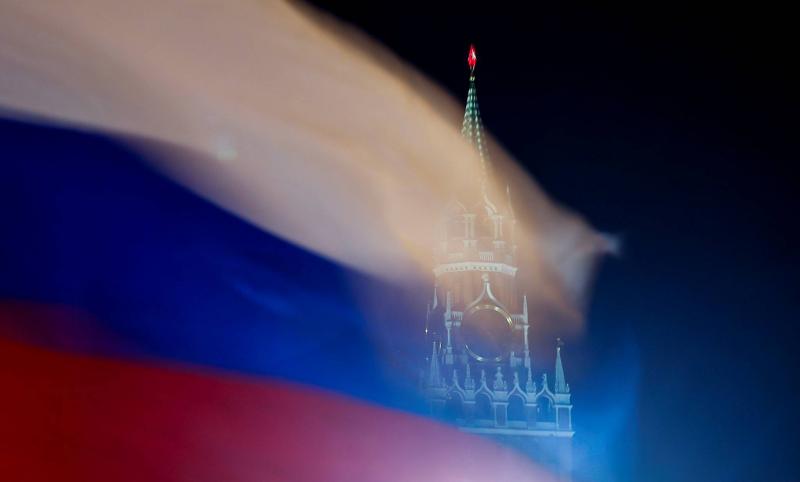The world lives by Kremlin time. The decisions of its master leave their marks on the security of the planet's inhabitants and the prices of energy and grains. Experts agree that a second year of the Russian war in Ukraine will be catastrophic for the world. Vladimir Putin's announcement of the deployment of tactical nuclear weapons in neighboring Belarus provides new evidence that he is trapped and has dragged the world with him. This announcement indicates that he cannot return from this war as a loser. Losing Ukraine might ultimately mean losing the Kremlin, and it could also usher in winds of disintegration for Russia itself, as only the strongman can hold together the parts of the Russian continent.
The world also lives by the timing of Chinese-American relations. The dispute over the future of Taiwan is a massive mine that the world cannot afford the consequences of its explosion. The global economy would suffer a fatal crisis if blood spills in Taiwan and around it. Current China is a strong state living under a strong man. The new China lives under the strongest leader since the days of Mao Zedong. Fortunately, this man has thus far resisted the temptation to slip into a venture that would be destructive to both his country's economy and the global economy as a whole.
The most dangerous aspect of the current Ukrainian deadlock is the difficulty in formulating an acceptable exit, even if the mediator is someone of the stature of the Chinese president. Putin closed the door early by announcing the annexation of Ukrainian provinces that he considers part of Russian flesh. He cannot withdraw from them, nor can he accept holding a referendum in those areas under the supervision of the United Nations and in the absence of his forces. Conversely, the West cannot sign a deal that declares the birth of a new Ukrainian map drawn with Putin's ink and the blood of Russians and Ukrainians. The ongoing slaughter around the city of Bakhmut is an expression of the deadlock and the ferocity of confrontation. The deployment of nuclear weapons in Belarus is a message that Russia is ready to resort to catastrophic options to avoid defeat.
In such a precarious international situation, governments both near and far must enhance their reading of the landscape, pay attention to their security and maintain their internal conditions, while working to provide for their populations to avoid disturbances that could unleash waves of cross-border instability.
The Middle East is concerned with this international situation. American troops are stationed in parts of it. Russian forces are positioned in Syria. The Iranian-American clashes in eastern Syria add further evidence of tension. However, a positive signal has emerged in the region from Beijing. The Chinese-Saudi-Iranian statement was of great importance. It not only spoke about the resumption of relations between Saudi Arabia and Iran, but also emphasized respect for the sovereignty of states and non-interference in their internal affairs.
Despite waiting for its implementation, mechanisms, and examining intentions, the impression prevailed that the Middle East may have a serious opportunity to emerge from the tensions, confrontations, and breakthroughs that have characterized the past four decades. Some viewed this as a golden opportunity for the fractured states to catch their breath and commence a tangible effort to repair their maps, resembling ships that have run aground amid storms or suffered holes. Repairing the maps begins by extracting lessons from the policies that led to their fragmentation: preserving national unity, reconnecting citizens to the state and its institutions, reviving the economy, and focusing on improving education and healthcare.
The Lebanese map is not a ship that has run aground. It is a hole-ridden vessel that requires rescue from the bottom it has been pushed into by a system of corruption, failure, and factional conflicts over the corpse of the state. Even if we assume that Lebanese politicians do not have enough time to engage with Kremlin time or Taiwan time, the ordinary Lebanese has the right to demand they seize any opportunity to begin extricating Lebanon from the hellish maze in which it has resided for too long.
Among the fractured maps, Lebanon's situation is the most precarious. The Lebanese collapse has reached a level that threatens to defeat doctors, if they exist, and if the patient shows willingness to receive treatment. More alarming than the images of Lebanese rummaging through garbage heaps to stave off hunger is the waning of bridges among Lebanese communities, the entrenchment of factional languages in their interactions, disregarding the constitution as a reference point. The contempt for the constitution, constitutional deadlines, and the imposition of practices that do not align with the spirit of the Lebanese structure, alongside linking Lebanon to projects and conflicts beyond its capacity to endure, have all driven Lebanon deeper into despair.
The battle of timing in Lebanon is painful. It reveals the vast destruction that has affected relations among Lebanese communities. It exposes the collapse of bridges, the widening gap between languages, the rising levels of rupture, and the estrangement among small maps within the small homeland. It uncovers the extent of disagreement in reading the past, dealing with the present, and looking toward the future. It lays bare the fear embedded in small maps concerning power balances, identity, changes in political, social, and demographic features, the style of living for Lebanese people, and their country’s regional and international standing. The best proof of this is the deadly hemorrhage caused by emigration and the extent of Lebanese despair from their country and their people, pushing them to throw themselves into "death boats."
The battle of timing is painful. Will the Lebanese seize every opportunity to express that they are not one people but a group of peoples squeezed into a narrow geographical corner? Do they want to convey their despair over their ability to build a state that accommodates all shades and colors, where peace is nothing more than a truce awaiting a more devastating war? Do they wish to imply that present-day Lebanon is sick with no cure? And that they are unable to devise a coexistence formula that guarantees rights and dispels fears? Do they want to live forever under the equation of an unsuccessful marriage and impossible divorce? How long can they endure living with an empty presidential palace in a troubled geographical space where neither the court is judicial nor the police are police, and the same goes for the parliament and the government? Why do the Lebanese forget experiences and refuse to learn from them? Is it lost on them that history has shown that every option larger than Lebanon is costly, and every option less than that is exorbitant?
The world lives by Kremlin time, and Lebanon exists under the timing of fear and its intrigues. Some believe that the Ukrainian impasse can be resolved despite its difficulties, but the Lebanese predicament is part of Lebanon's very fabric. The battle of timing is frightening. A capital with two timings, institutions with two timings, and buildings with two timings. Which timing will cause the country to perish?




